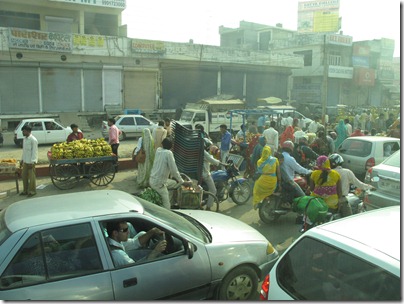On 10-11 December 2011, I attended the 7th Global Conference on Buddhism in Jakarta. The first speaker was Ringu Tulku Rinpoche on the topic of Living Without Fear and Anger.
This is a summary of Ringu Tulku Rinpoche’s talk.
ANGER
The problem with anger is when we are not able to deal with anger. Anger causes destructions and harms not only to myself but to other people. We often keep the anger and hatred in our heart, thus keeping the hurt and eventually harm ourselves. We also have many regrets after we say or do something in uncontrollable anger.
What is anger? Anger is a disturbed peace of mind. It often creates malevolent feelings and brings an aura of unease.
We often react to a situation with the feeling of anger because we don’t know there is an alternative to anger. First, we need to learn to see the purpose of anger. Anger usually arises when we are not satisfied or something was wrong. Second, we need to transform the feeling of anger so that the purpose of anger is served without causing unhappiness to ourselves and others.
Some people say that we need anger to stand up against injustice. When there is injustice, when something is not right, you can have either anger or compassion. What we need to understand is that the emotion of anger and compassion come from a similar source. The difference is how you look at the situation.
If you focus on the person who does the wrong thing, then you have anger. If you focus on the issue, then you have compassion. If we focus on the issue, there is no need to be angry to the people.
Although some say that anger provides energy and power, compassion actually provides more sustainable energy. Anger is like a flare of fire. It flares up, then it’s over and you lose all the energy afterward. On the other hand, since compassion beneficial to everybody, there’s an enthusiasm to keep going, thus creates more sustainable energy in the long run.
How do we deal with anger? We need to see WHY you are angry, find the issue. Then we find solutions to that issue, solutions that can benefit everybody.
Is it easy to deal with anger? No, it is not easy because we have the habit to be angry.
Sometimes people say that we have the right to be angry. Yes, we have the right to be angry, but we need to remember that being angry does not solve anything. Therefore, it is better to focus on the issue and be compassionate.
FEAR
Fear is being afraid that something bad is going to happen. Fear is suffering because even when everything is fine in our lives, fear can still bring unhappiness. For example, although work is not stressing us, but when we have fear and start worrying, then it will bring stress and tension.
We need to remember that worrying does not help us. Nobody says that something will not happen just because we worry about it.
What do we need to do? We need to our best to prevent negative things from happening, but since we cannot be sure that we can change everything, then it is not useful to worry. Worrying does not change anything and it only brings pains. Uncertainty is a natural phenomenon. It is a fact and we need to accept it. Just prepare and do our best!
Since having fear and worrying do not change anything, it is wise to learn how to let go of fear.
Some people say that we need fear to survive, to avoid danger. It is not fear that enables you to survive and avoid danger, it is wisdom!
For example, crossing a road in India. 
If you want to be able to cross a road in India, you need to be unafraid. You must be clear in your mind and have the presence of the mind. You don’t panic and you walk slowly across the road. In order to survive crossing the street, you must have wisdom and not fear.
In conclusion,
Not anger, but compassion!
Not fear, but wisdom!
Instead of living with fear and anger…live with wisdom and compassion!
Learn and Grow!
Inge Santoso, B. Com

No comments:
Post a Comment